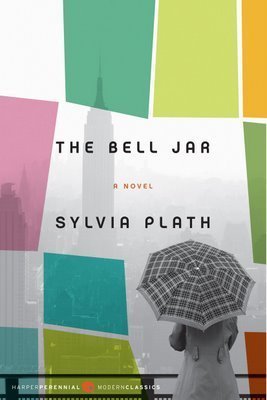The Bell Jar
Sylvia Plath
Series: N/A
Genre: Psychology, Adult, Mental Health
Rating: 5 out of 5 stars
Word Rating: Authoritarian
On Goodreads
Sylvia Plath
Series: N/A
Genre: Psychology, Adult, Mental Health
Rating: 5 out of 5 stars
Word Rating: Authoritarian
On Goodreads
I'm reading a lot of books before I finish the War of The Fae series. Woops!
This won't be my last word on Slyvia Plath's only novel. This isn't my first word. This is my initial reaction.
First, I'm miffed I haven't read this before. It's incredible. There is almost too much to write.
Brief context: Plath killed herself a few days after the novel's publication. This is a novel about a woman who nearly kills herself but doesn't. It's almost impossible to detach the author from the work (as some of us would like to do with Ender's Game and Orson Scott Card or Star Wars and George Lucas; these are terrible examples for the expense of petty humor but you get the point). One can't help but conflate Ester, our protag, with her author. And even if that wasn't the case, it speaks to the work's most defining quality: it's drowning in Sylvia Plath. She is indeed 'silver and exact' in this novel.
Which brings the first of my main points: holy hell that word choice. She takes the English language and just snaps it in half and builds it again from the ground up. It's absolutely gorgeous. This is exemplified in just the first and second page: there are five paragraphs that start with 'I' . . . in a row. And they're all one sentence. This is personal and intimate and conversational, but also completely challenging the aesthetics and formality of varied language, of 'proper' English.
And let's not forget the poetry either, all of the "being burned alive along all of your nerves", all of the "cindery dust" (Plath, 2 (ebook)). . . and:
"I felt very still and very empty, the way the eye of the tornado must feel . . . " (2)This isn't even three pages in. This is still the introduction. I love it. This is 1963 and yet it has all of the trappings of a current YA novel.
I might return to word choice another day, but just be assured that it only gets better as the novel intensifies.
What struck me most, however, and really defines why this is a five star novel for me, is the way that depression and mental health are portrayed. It's acutely difficult to pinpoint what faculties should be explicitly stated or implied when writing about mental illnesses, it's horribly hard to say what depression is like or how to describe it. Everything is just muddled in our heads. But The Bell Jar, for a hell of a lot of people, it seems, honestly portrays the descent of the mind, the confusing nature of it all. There is so much fragility in being human and Sylvia Plath is deadly honest about it and it shows.
"In the afternoon we went to see a baby born." (53, ebook. A page or two in from chapter six, whatever).Over and over and over again, Ester describes her actions in this detached, passive fashion, as if she isn't experiencing them at all. It's happening to someone else. She explicitly states on the first page that she should be happy. But she isn't, but we don't realize what her statement means until later on.
It's so flipping subtle, isn't it!? It's so subtle that you won't even realize what it's about until it just jumps at you. Depression plays with you, life feels detached, Holy Poseidon this book is so amazing.
You can't begin to discuss depression with anyone who has been brainwashed into thinking it isn't a serious issue, that it's just being sad, that you can simply take pills to cure it. It's huge and explainable and in the exact same way that you feel happiness (with your entire body, literally your entire body heats up and your nerves are so much more active) you feel this horrible feeling that she describes as a Bell Jar. But you can discuss it with this book.
I'm going to shut up now, or I'll just ramble. Read this book. Do it.
- Marlon
How would you describe depression?
Let us know in the comments!


No comments:
Post a Comment